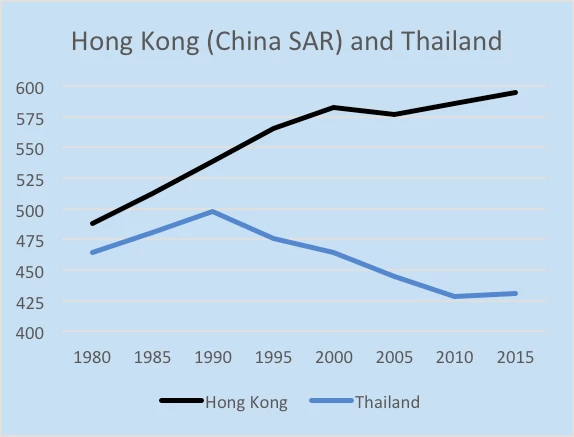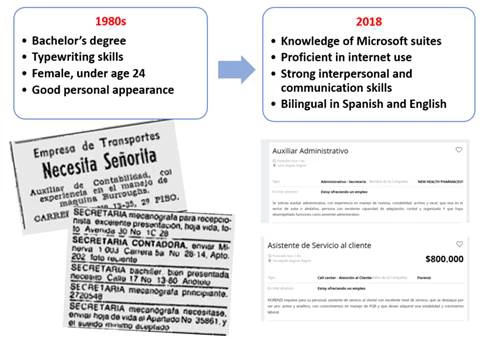In 1997, Garry Kasparov, one of the greatest chess players in history, lost a chess match to a supercomputer called Deep Blue. Some years later Kasparov developed “advanced chess,” where a human and a computer team up to play against another human and computer. This mutation of chess is mutually beneficial: the human player has access to the computer’s ability to calculate moves, while the computer benefits from human intuition.
This is the future of work – not just machines replacing humans but also machines augmenting humans. The future is: Human & Machine.
However, our collective imaginations (say for instance in Hollywood) continue to be gripped by dystopian visions of machines replacing humans wholescale. Researchers are paying attention to these ideas. One paper suggests that around 47 percent of US employment is at risk of automation.
But this is just one side of the picture. As the advanced chess example suggests, while human skills that can be substituted by technology may be less in demand; human skills that complement technology are becoming highly valued. Two types of human skills are particularly potent in the Human & Machine mix.
First, advanced cognitive skills, such as complex reasoning. These skills when combined with machine capabilities drive innovation. For instance, venture capitalists rely on complex problem-solving skills to take ideas to scale. However, they are constrained in how to most effectively locate promising investment opportunities. Artificial intelligence is solving this problem. Similar combinations of human advanced cognitive skills and machine capabilities are transforming medical diagnostics, cyber security, and much else.
Second, socio-emotional skills such as team-work, conflict-resolution etc. These skills when combined with machine capabilities can dramatically improve our quality of life. For instance, in medicine, when the human skills of emotional intelligence and caring are combined with the machine-ability to quickly identify highly-tailored interventions, patients get access to solutions that fit their life and adherence to medical advice goes up. Similarly, when machines assist insurance agents in evaluating injury reports, these agents have more time to apply the human skill of empathy to more humanely deal with customers.
Which skills will no longer be in demand? Beyond the broad prediction of possible automation of routine tasks, it is hard to be more specific for low- and middle-income countries. This is because technology is not the only – or even the most powerful – force playing out in these countries. Just as important are forces of globalization and innovation.
At any given time, the skills-mix demanded by labor markets will be determined by which forces – automation on the one hand and globalization and innovation on the other – dominate. This battle can most clearly be seen in the changing demand for middle-level skills. They seem to be increasing in some low- and middle-income countries and decreasing in others (see figure 1).
Figure 1. Annual average change in employment share of middle-skill occupations (circa 2000 - circa 2015)
Source: Authors’ calculations based on International Income Distribution Database.
Note: Middle-skill occupation: (1) clerical support workers, (2) service and sales workers, (3) craft and related trades workers, (4) skilled agricultural, forestry and fishery workers, (5) plant and machine operators, and assemblers.
So how should a young person in these countries plan her education? By ensuring strong human capital foundations. These foundations are predictive not just of our ability to develop advanced cognitive and socio-emotional skills; they are also important for our adaptability (learn more in Chapters 2 and 3 of the new World Development Report on the Changing Nature of Work).
Adaptability - ability to learn and unlearn quickly - is the best inoculation against a future that is changing fast and unpredictably. Where new jobs appear out of nowhere – China today has 100,000 data labelers. Or old jobs are transformed beyond recognition – administrative assistants who spend most of their time managing social media accounts (see figure 2).
Figure 2. Typical job requirements of administrative assistant in Bogotá, Colombia
Source: Authors’ analyses based on newspapers and career website.
While the precise science is limited and controversial - adaptability can be seen as the combination of specific socio-emotional skills like emotional resilience, self-efficacy, and specific cognitive skills like critical thinking. Can adaptability be developed? Some are trying to crack the magic recipe. But here again strong human capital foundations are important (learn more in Chapters 2 and 3 of the new World Development Report on the Changing Nature of Work). As Thomas Friedman said, “Learning is so much more important than knowing when change happens fast.” You will be employed in the future if you have mastered the skill to learn.





Join the Conversation